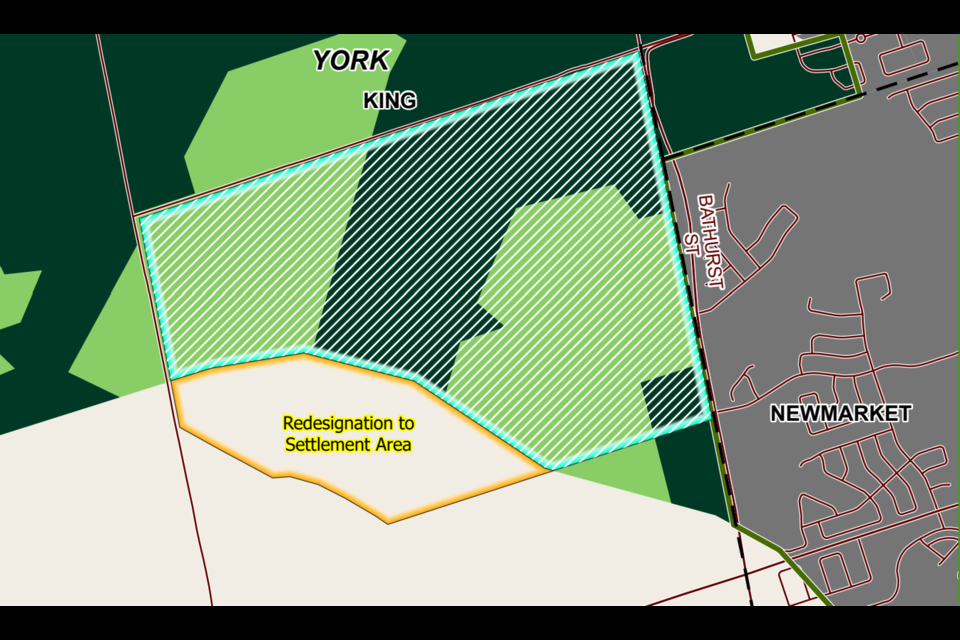York Region is bracing for a possible ministerial zoning order for a new 15,000-person community in King on Newmarket's western border.
Staff discussed the issue in a presentation about fiscal sustainability to council today, June 15. The region is planning for new communities on Greenbelt lands that will need to be served, including the land in King recently opened for development.
Mayor John Taylor said Newmarket will be impacted by these new residents coming into town for services. He further said the province has not kept the Town of Newmarket "in the loop" and asked York Region to push for them to be included in the conversation.
“It’s painfully obvious it’s going to impact us significantly, and I feel like I know virtually nothing about it,” Taylor said.
The 15,000 figure is a preliminary estimate, York Region CAO Bruce Macgregor said, with the province working on the proposal for the area. The provincial government opened up the formerly protected area for development a few months ago, with King now pushing to have a new Southlake Regional Health Centre location on the lands.
The King Greenbelt land is one of several new potential communities throwing a wrench into the region’s long-term planning. The discussion came as part of a mid-year financial sustainability update, which detailed how new developments coming through the opening of Greenbelt lands for development, ministerial zoning orders and provincial legislation will strain the region’s servicing capacity and infrastructure development.
“There’s definitely a lot more work that needs to be done to finalize the infrastructure implications of these recent provincial changes,” commissioner of public works Erin Mahoney told council.
A further challenge to regional planning is the province deciding against the Upper York Sewage Solution and toward expanding sewage systems in Durham instead. Regional staff estimate that the costs incurred to do this will be higher than the $1.06 billion over 30 years it is expected to spend for the Upper York facility and on a shorter timeframe.
“New resources, contracts and financial mechanisms will be required to deliver this accelerated infrastructure program,” the staff report said.
Council passed a resolution to renew a request to the province to keep the municipality whole with funding to offset the province's Bill 23 reducing development charges. Those charges are typically used to fund municipal infrastructure for new development.
The resolution also asks staff to apply a principle that unplanned infrastructure be 100 per cent funded by developers.
Chair Wayne Emmerson said council has to ensure the unplanned growth is not on the tax bill.
“I don’t believe the taxpayer will want to pay for growth that’s going to benefit the development industry,” Emmerson said, adding the province can not be let off the hook for any tax implications for reducing development charges.
